Online Gambling Sites Guide in the USA
Updated: 28.07.2025
Greetings from Gambling-Giant.org! If you seek the finest sites to wager real money, you need look no further. We have developed our site to serve as a comprehensive guide for individuals looking for the perfect online gaming sites tailored to their specific tastes and requirements.
| Rank | Gambling Site | Deposit Bonus | Get Started | |
|---|---|---|---|---|
| #1 |

|
250% Up To 6,000 USD | Visit Site | |
| #2 |

|
VIP Program + 250 free spins | Visit Site | |
| #3 |

|
250% Up To 5,000 USD | Visit Site | |
| #4 |

|
225% Up To 8,000 USD | Visit Site | |
| #5 |

|
100% Up To 3,000 USD | Visit Site | |
| #6 |

|
200% Up To 5,000 USD | Visit Site | |
| #7 |

|
100% Up To 3,000 USD | Visit Site | |
| #8 |

|
60% Up To 1,000 USD | Visit Site | |
| #9 |

|
240% Up To 2,500 USD | Visit Site | |
| #10 |

|
100% Up To 1,000 USD | Visit Site | |
| #11 |

|
200% Up To 5,000 USD | Visit Site | |
| #12 |

|
280% Up To 14,000 USD | Visit Site | |
| #13 |

|
100% Up To 500 USD | Visit Site | |
| #14 |

|
100% Up To 1,000 USD | Visit Site | |
| #15 |
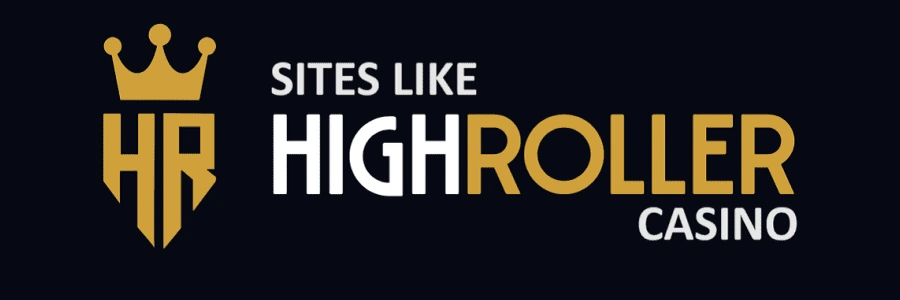
|
100% Up To 8,000 USD | Visit Site | |
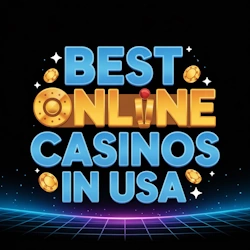
Even so, we have much more to give than mere suggestions of online casinos where you can wager real money. We have been in this space for many years now and have created a plethora of guides that may help you find what you truly prefer to bet on. When it comes to online gambling and the plethora of forms that it takes, we know we can lend you a hand.
As you'll see, we're here to be your all-in-one center for anything tied to gambling. Our site is chock-full of strategy guides, blogs, and reviews of online gambling sites that are just brimming with the details and depths of everything you need to know to make winning decisions (or at least avoid making losing ones!).
Prior to getting into the substance of our work, we want to share just a bit about our team. We have been very fortunate to staff our organization with a team of experts who now—and in many cases, previously—have extensive experience in the gambling field. Because of this, we are able to cover with some depth a very wide variety of gambling-related topics, including and certainly not limited to those in the title above (and in the title of this section), which are mainly about sports betting and casinos. If you are interested in learning more about the team at Gambling-Giant.org, we offer some additional detail below.
Best Gambling Sites
Recognizing the distinctions between the different opportunities for placing bets online, a customer can feel confident that, no matter what is being gambled on, it will all be managed in a totally aboveboard and professional manner when the virtual dust settles. This is an assurance many patrons enjoy and appreciate. (2003)
The websites we have chosen are outstanding instances of trustworthy platforms. They exemplify how such platforms should work, as far as we can tell, to safeguard a person’s online gaming experience and ensure that it is legally, ethically, financially, and industrially above board. This is a proven and effective way for online platforms to function.
Is Online Gambling Legal?
Indeed, it is lawful to wager on the internet. If you are eager to partake but are held up by worries about the legitimacy of gambling websites in the United States, do not be alarmed! The statutes and directives that aim at these websites are aimed at the markets and their operational base.
The federal government considers online gambling completely legal. However, regulation and authority largely rest with the individual state governments. For betting and gaming customers in the United States, the legality of the wager made often appears to hinge on the federal ruling. Ultimately, though, all questions of legality seem to center on the location of the casino or the website and judge whether that place operates under valid laws.
It’s important to note we are not lawyers, nor do we claim to give legal advice. For any questions about your local laws we encourage you to seek the help of a professional in either the legal or gaming fields
Because there are so many laws and regulations related to gambling all over the world, we've created a page to explain them. If you are going to use an online gambling site and want to know about the various rules and their applications, check out our gambling laws section.
Gambling Sites by Category
Sports Betting Sites
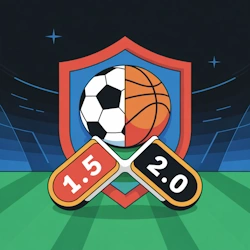
In both sports and gaming, the online sports betting industry is one of the fastest-growing and has exploded into the preferred method of getting in on the action of gaming on sporting events. Find a list of some recommended sites for different types of sporting events below; through review and recommendation of their respective information, you can arrive at a good idea of how to get in on online gaming.
Best Online Casinos

In the link below, we give some of the best online casinos to consider, along with the reasons to choose them, for anyone who might be looking to gamble in a digital space. For a long time, the digital gambling landscape has been fraught with tension and concern, but in recent years, many of these apprehensions have eased. Still, it is extremely important for anyone looking to use online casinos to understand the immediate pros and cons, along with the basic rules of safe and sound online gambling.
Online Gambling Apps
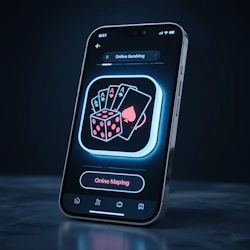
Many of the top-rated casinos and sportsbooks have taken the initiative to make their websites compatible with mobile apps, so common is the use of online gambling sites. You can explore some of these popular and easy-to-use apps by following the link below. Try them out yourself and see if they correlate smoothly with their associated betting site.
Crypto Gambling Sites

With the rising popularity of cryptocurrencies such as Bitcoin, Ethereum, and Litecoin, we stand by and offer a guide to using these crypto gambling sites. We take measure of the markets that make up many of the crypto gambling websites to bring you a full list of betting sites that you can use and explore.
Horse Racing Betting Sites
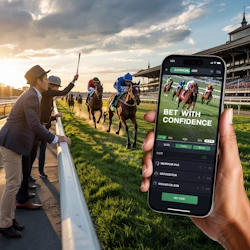
Whether you are a fan of the Triple Crown or just looking to pass the time on a lazy afternoon, the horse racing betting scene is still very much alive and well. And even though we are living in a time when sports betting has exploded, there is still a core group of bettors who seem to prefer playing the ponies. They are a demographic we cater to here at streamersports.com.
Real Money Gambling Sites

Although countless fresh methods and forms of betting crop up every few years, there are still plenty of folks who keep it old school, using their own cash to place traditional wagers. Whether you're a poker high roller or a sharp bettor on other kinds of sports, knowing the best real money gambling sites is a must.
Finding the Best Online Gambling Sites
Our Selection Process
- Sites With Fast Payments The point of gambling is to win money, so it seems counterproductive for a person to win then have to wait to receive it. This is why fast payout betting sites are imperative. The shops that don’t hold themselves to this standard have a horrendous reputation. Slow payout is one of the biggest problems that blacklisted and fraudulent sites are known for, while the fast payout online casinos are able to secure a clientele that’s built in trust and professionalism.
- Real Money Sports and Casino Gambling Like fast payouts, depositing real money is part of the convenience of online gambling that keeps customers coming back. Being able to effortlessly make one’s deposits for bets, then receive their winnings is what every bettor wants. Real money sports betting is generally the preferred practice by those who want to bet online. The same applies to non-sports betting players, with real money online casinos having a similar effect for their targeted demographic.
- Legal Online Gambling Sites We push our legal online gambling sites to numerous countries around the globe. The common misconception in gaming online is that many believe it is based on the location of the customer. But, in actuality, legality can be based on the location of the place of business.
- Updating Our Rankings and Recommendations Even something fun like gambling requires some extra effort. Doing the homework is a vital step in our selection process. We advise all potential players to inform themselves on exactly what they want to gamble on, how they plan to do it, and what the ramifications are for going through with it.
- Listening and Using Your Feedback Remember, whether it’s a sports wager or a casino game, most bets that can be placed at multiple markets. As an industry that continues to expand, the gaming community thrives off of variation as a form of competition.
Real Money Gambling Site Reviews
One of the most valuable assets we offer to readers are in-depth reviews of online gambling sites.
Prior to taking the steps necessary to enroll in any online gambling platform where real money is at stake, it is wise to check our review first. That way, you can be confident that the site is on the up and up and offers everything you're looking for.
Online Casino and Sportsbook Reviews
If you’re in the market for impartial and truthful assessments of the top online gambling platforms, we have just what you need.
Here we have provided hyperlinks to several of our favorable reviews of online gambling sites. If you’re not particularly interested in any of the reviews linked above, and maybe even if you are, you should check out the link below to see the full collection of our online gambling site reviews. If you’re considering playing at a site, we’ve almost certainly reviewed it.
Our Selection Criteria
When we put together one of our detailed web-based gaming site assessments, we don’t simply take a couple of minutes to glance at the site. Instead, our team spends countless hours meticulously examining every single facet of their operation.
In this way, we attempt to check all the boxes, to ensure that any question which might arise will be answered. We think it's perfectly fine for everyone to have their own individual way of doing things, but we also try to equip both experienced and novice gamblers with the right kind of foundational knowledge, until they feel comfortable going it alone.
Have a look at the list underneath to see some of the very most key elements that affect the assessment of each site where you can gamble with real money.

Whenever you have cash at stake, it's paramount that you can trust the party on the other end. Clearing a gambling website as a trustworthy entity lets you take the following steps with a whole lot less doubt and secondly, without caution.

The most reputable and widely used betting sites all provide bonus rewards and exclusive promotions. Any legitimate business in the gaming industry (be it digital or physical) will have these kinds of offers. They are opportunities, potential patrons, that you should be looking out for if you want to make the most of your gaming experience.

Regardless of the image problem it may have, gambling is a very pro-customer line of business. The top people in casinos, sportsbooks, and online betting sites like to think of their businesses as being in the very customer-service-oriented business. They do this for a good reason: If they lose your business, they lose a large chunk of their profits. To that end, they make every effort to assist you in whatever way you need.
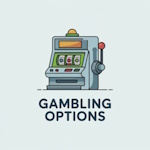
In the world of gambling, variety is essential, as any seasoned gambler will tell you. And yes, we know how fundamental strategy is to an effective gambling system. But strategy, as we see it, is best implemented when there are numerous options to choose from. The best online gambling sites understand this and, therefore, will offer a multitude of options and options within options for you to gamble with.
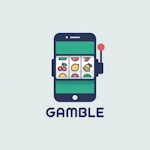
Navigation and usage are critical for online gamblers. The superior gambling sites make their content and choices so plainly visible and comprehensible that it is hard to imagine how they could be improved. Gambling-friendly mobile apps are now available for almost all of the best sites, and the sites that don’t have an app almost universally have a mobile-friendly version of their book or casino. The appeal of mobile gambling has never been greater.
Why Trust Gambling-Giant.org?
We get it. If you're visiting our site for the first time, it's only natural to wonder why you ought to trust us and the information that we have to offer. Especially when you consider that some people only trust info that they get from certain well-known sources. See the highlights below to get to know our team. We aim to consistently be your reliable purveyor of all forms of gambling, supplying high-quality and beneficial information.
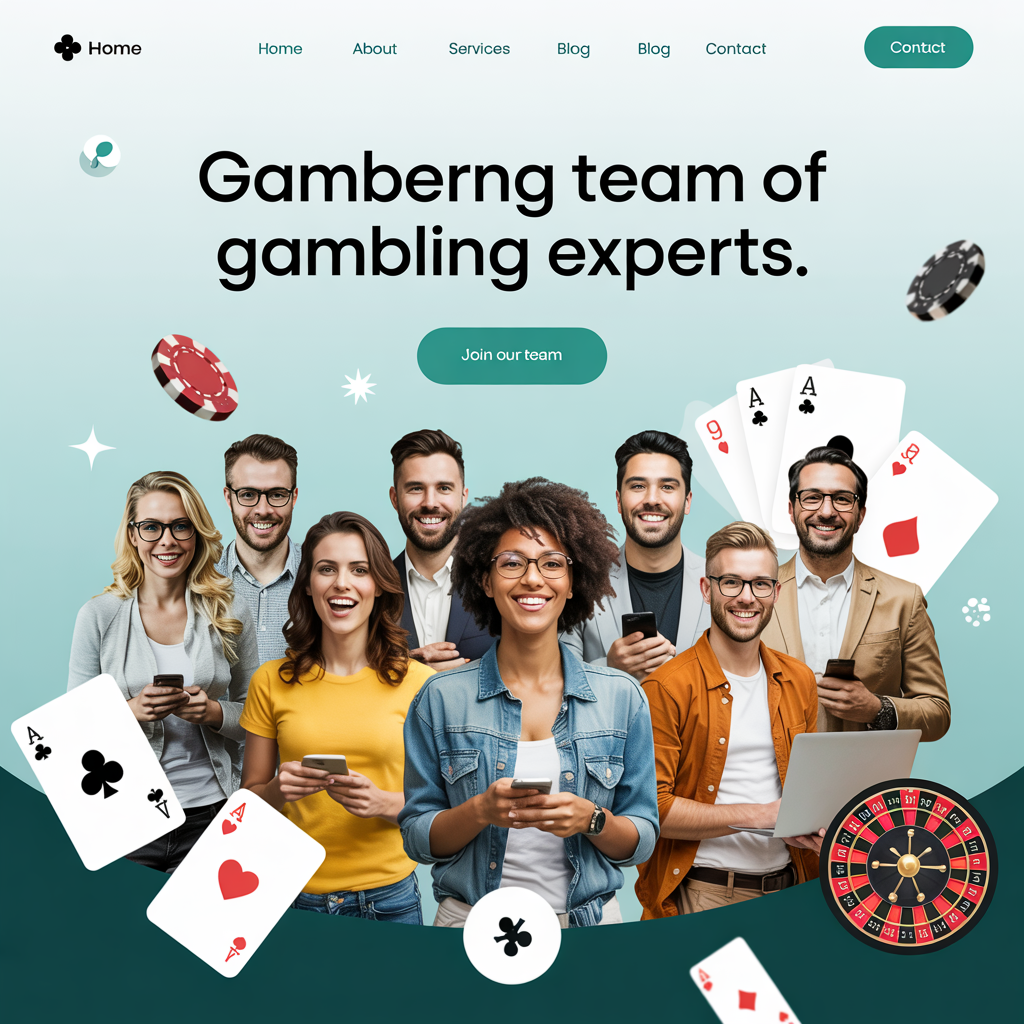
Our Team
Fortunately, we have a wonderful team that helps us produce all the superb content on Gambling-Giant.org. To meet our team, check out our team page, where you can view the names and bios of our team leaders, content managers, graphic designers, and all the other people working to make this site run. As you’ll see, this team consists of a lot of awesome people who bring their varied skills and expertise to the table.

Experienced in a Variety of Gambling Topics
If it's related to wagering, we take care of it. Whether you're using an online gambling platform or a physical casino, we have guides and resource pages that cover the full range of topics related to wagers. And our advice caters to all sorts of gamblers, from the just-at-home sort to those living it up at a Vegas-style casino, and from the novice to the hájme. Guides to casino games, sports betting strategy, and the basic asking of seemingly dumb questions fill our pages.

User Safety Is Our Priority
To guarantee a secure experience when you’re on online casinos where you can play with real money, we would highly recommend one of the sites at the top of this page. If you're thinking about any alternatives not on the list of suggestions above, definitely check out our blacklisted sites page linked in the section below. There, you'll find a rundown of all the gambling sites we don't trust and strongly suggest you steer clear of.
Beginner’s Guide to Online Gambling
If you're preparing to bet in person or online for actual cash, we have a fantastic guide for you that was made with beginners in mind. The linked page helps you to start on the right foot, establishing a sturdy base of knowledge, and then it aids you in applying that knowledge to the various types of gambling with which you might engage.
We'll help you widen your base of knowledge and assist you in grasping the concepts, terminology, logic, and strategies of gambling.
Even if you are an experienced gambler who has only ever visited brick-and-mortar casinos, you can take your first steps into the online gambling world with this useful guide.
Answering Your Questions About Online Gambling
How Long Does It Take to Get Started With Online Gambling?
Once you make up your mind that you are prepared to start betting on the internet, it will not take you long at all to have everything ready to roll. The only setup that tends to take some time is picking an online gambling site to use. Fortunately, you have plenty of great options to choose from, including the sites we’ve listed at the top of this page. If you go with any of these, you’ll be dealing with top-notch and very reliable sites.
Once you've found the online gambling site that suits you best, the process that follows shouldn't last longer than 10 minutes. Initially, register for an account by supplying essential details. Next, finance your account with the first deposit. If you'd like your funds to be immediately available for use, you can opt for an instant funding deposit option such as bitcoin or Skrill.
How Do I Choose the Gambling Site That’s Right for Me?
Because each of us has individual requirements and desires associated with online gaming, we can't really provide one answer here that suits the whole lot of you who visit this page. However, we have constructed a truly first-rate resource page that should help you put in place somewhat of a game plan for choosing real money online gaming sites. Check the link below if you'd like to view a rundown of the various factors that might make up your ideal online gaming site.
How Many Real Money Gambling Sites Should I Use?
In the end, there is nothing that prevents you from registering with several real money online gaming sites. Yet, if you are a newcomer to internet gaming, we recommend that you begin with just one reliable operation. For most individuals, one top-notch gaming site provides all the services they need, right at their fingertips, and without the hassle of tracking several different logins and account balances.
For seasoned online gamblers, there can be several benefits from using more than one gambling website. This is particularly the case for individuals who are seeking to shop around for their lines while engaging in online sports betting. Moreover, utilizing several real money gambling sites can also furnish an occasion to exploit a wide variety of bonuses and promotions.
Why Should I Gamble Online?
You might contemplate waging a bet on the internet for several reasons rather than at a physical casino or sportsbook. Most gamblers who use online betting sites do so because they appreciate the overall ease of use and the many bonuses and promos that betting sites offer.
In terms of convenience, you can place bets with online sportsbooks using your computer, tablet, or smartphone. You don't have to go anywhere; just bet from the comfort of your own home. In fact, you can make your bet within seconds after deciding on what you're going to wager. Once again, you're not limited to mainline bets; you can find a far more extensive array of options with an online sportsbook than with a land-based casino.
In addition, there are bonuses and promotions tied to online betting. When you use one of the best gaming sites recommended at the top of this page, you have access to bonus potential that runs into the thousands of dollars.
What Banking Methods Can I Use for Deposits and Withdrawals When Gambling Online?
Typically, you have a range of methods available for making deposits and withdrawals. Consult our detailed page on payment methods for online gambling sites to learn about some of the most frequently used and favored options in this part of the internet.
Do I Have to Download Software to Use an Online Gambling Site?
No. Although some gambling websites do provide a downloadable software option, it is not at all necessary to use this in order to gamble for money online. More often than not, players are able to access secure gambling through their browser with absolutely no need for extra software.
What Devices Can I Use to Access Gambling Sites?
You can use a number of different devices for online gambling. One is a computer or laptop. Yet many of our top recommendations allow and even encourage betting from mobile devices. This allows for the truly exciting prospect of doing your online gambling from anywhere, even the palm of your hand.
How Much Money Does It Take to Get Started With Online Gambling?
The operations differ in terms of their minimum deposits necessary to commence online gambling. Nonetheless, according to our experience, we can say that it is quite usual to encounter virtual gambling joints that will let you start with just a $10 deposit. If you are iffy about any particular site and their requirements, give their customer service a shout and ask what their minimum deposit is.
Can I Try Games for Free at Online Gambling Sites?
Yes, in many instances. You can often find online gaming sites that give you the opportunity to play many of the casino games for free. Free casino gaming is a wonderful way to learn how to play a new game, for instance, or to get a feel for the environment, before you start putting real money on the line. It is an option that many online gambling establishments give their players.
If I Normally Gamble at Land-Based Sportsbooks, How Should I Go About Trying My Hand in Online Gambling?
You can do it however you like. Once you've completed the start-up process, you can carry on your way just like you would on a physical property, but with the added benefit of placing your bets from virtually anywhere over the internet. It is advised that when you go about making your wagers, you do so with the same mindset and practices you'd employ if your feet were planted in a land-based casino. The whole essence of what we're discussing remains the same; you're just getting it done via a different medium.
What Do I Do If I Am Betting Online but Something Doesn’t Look Right?
Steer clear of it. Obvious trouble signs are one of the first indicators that a virtual casino or sportsbook is not worth your trust. Authentic gambling websites present their information so clearly that it sometimes seems too simple, given the nature of the business. If you were to encounter a site that was rough around the edges or more difficult to navigate than you'd like, that would raise a red flag for me. A gamble is not a life-or-death situation. You can't go wrong by simply not doing it. And you also can't go wrong by playing it ridiculously safe if your gut is telling you to avoid a certain site.
If I Have a Gambling Problem, Can I Still Gamble Online?
It is unfortunate, but in certain parts of the country, it can be very easy to gamble online and not be detected. Most gambling sites, however, do have measures or laws in place to help prevent that. Weseriously advise against attempting to bypass any online gambling laws to access and use online gambling sites. If you or someone you know is having problems with gambling, we highly recommend that you visit this online gambling help site.
Is There Any Form of Gambling That Functions Better When It Is Not Performed Online?
All principal components of online gambling, and indeed, all the major forms of gambling activities, are just as compatible online as they are in person. The customer experience will vary, of course, due to location and the sort of action a player is involved with. But the actual functionality of online gambling sites I have experienced runs perfectly in line with what takes place at traditional, land-based casinos and sportsbooks.









